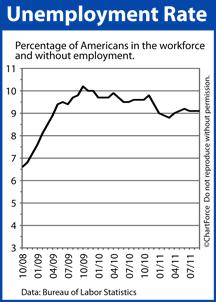 Mortgage markets worsened last week as safe haven buying eased and demand for mortgage-backed bonds dropped. As in most weeks since March 2011, Greece and U.S. jobs dictated market direction.
Mortgage markets worsened last week as safe haven buying eased and demand for mortgage-backed bonds dropped. As in most weeks since March 2011, Greece and U.S. jobs dictated market direction.
Conforming mortgage rates in OH rose last week, lifting rates off their all-time lows and causing consternation among the nation’s would-be buyers and refinancers.
Last week’s action may surprise you. After all, Freddie Mac’s weekly mortgage rate survey said average, 30-year fixed rate mortgages had dipped, dropping to 3.94% — the first time the average rate reported sub-4 percent.
A keen eye, however, revealed the another truth.
Yes, the average 30-year fixed rate mortgage did go sub-4 percent, but, in order to get those rates, applicants were suddenly required to pay 0.8 “discount points”. This is an increase of 0.1 discount points from the week prior, a change in loan cost thatr reduces the benefit of falling mortgage rates.
1 discount point is equal to 1 percent of your loan size.
All of that is history now, however,. Rates climbed each day last week and are now at their pre-Labor Day levels. The Refi Boom may not be over, but it may be stalled.
This week, mortgage rates may continue to climb. There is talk within the Eurozone that Germany and France will come to Greece’s aid, and that a plan will be solidified prior to November 3. This would boost stock markets at the expense of bonds, leading to higher mortgage rates.
In addition, last week’s strong employment data has renewed speculation that the U.S. economy is, in fact, healthy so analysts are now watching for Friday’s Retail Sales data.
Because consumer spending is an economic catalyst, if Retail Sales shows strength, mortgage rates should rise.
And, lastly, there is a 10-year Treasury auction Wednesday. Mortgage bonds don’t mirror the treasuries, but when demand is strong for treasuries, it’s often strong for mortgage-backed bonds, too. Therefore, a strong auction of government debt will help hold mortgage rates down.
A weak auction should lead rates higher.
